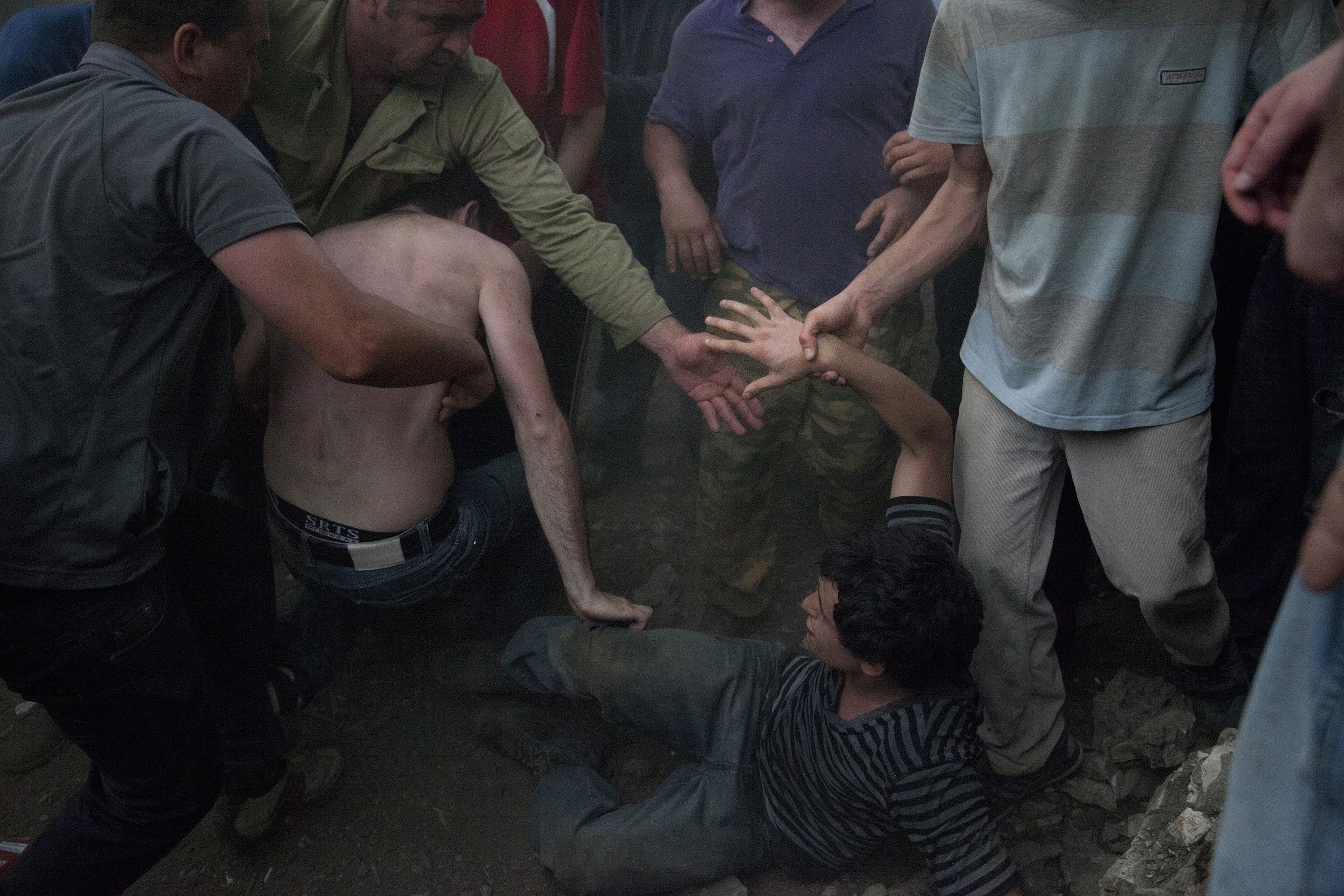The changing face of Georgia, captured in photos
- Text by Eva Clifford
- Photography by Daro Sulakauri

Daro Sulakauri was born in the Caucasus nation of Georgia in 1985. After spending part of her childhood in the US, she returned to Georgia and discovered photography. Shortly after, things began heating up in Tbilisi, and political demonstrations started to take place just outside her family home in the centre of the city.
Today, as we talk on her balcony, it’s difficult to hear each other over the sound of birds singing. But as a child, she remembers hearing the sound of gunshots. “I grew up in a generation that has witnessed a lot of transition,” she says. “There was always something going on, so it was a very interesting period for me as a photographer.”


After graduating from the Department of Cinematography at the Tbilisi State University, Sulakauri moved to New York to study photography at the International Centre of Photography (ICP), before returning to Georgia to work on her first stories.
In 2008, the Russian-Georgian conflict erupted and Sulakauri turned her focus to those affected. Travelling north, she met with people living along the occupied borderlines of Georgia, next to the de-facto “breakaway” regions of Abkhazia and South Ossetia – both of which are forbidden for Georgians to go with a Georgian passport. “To enter, you have to find someone to sneak you in,” she says. “So it’s a long process.”


As the boundaries of Russian-occupied territory are constantly shifting, Sulakauri says these people live in perpetual uncertainty, and “can literally wake up one morning to find their home is no longer in their homeland.”
“I learnt so much from the people I was photographing,” says Sulakauri. “You realise how fortunate you are and you begin to look at life in a different way.”
Changing Horizons covers just some of the stories Sulakauri has produced in her country over the years: “It chronicles my journey as a photographer, and the relationships with the people I have met over the years.”
“Everything’s subjective,” she adds. “I just try to tell the story in the most truthful light.”








More of Daro’s work can be seen on her official website.
Sulakauri was one of the exhibiting photographers at Kolga Tbilisi Photo Week, which takes place each May in the Georgian capital.
Enjoyed this article? Like Huck on Facebook or follow us on Twitter.
You might like

Largest-Ever Display of UK AIDS Memorial Quilt Opens at Tate Modern
Grief Made Visible — Comprising hundreds of panels made by lovers, friends and chosen family, the UK AIDS Memorial Quilt returns in full for the first time since 1994 – a testament to grief, friendship and the ongoing fight against HIV stigma.
Written by: Ella Glossop

In Medellín’s alleys and side streets, football’s founding spirit shines
Street Spirit — Granted two weeks of unfettered access, photographer Tom Ringsby captures the warmth and DIY essence of the Colombian city’s grassroots street football scene.
Written by: Isaac Muk

Remembering New York’s ’90s gay scene via its vibrant nightclub flyers
Getting In — After coming out in his 20s, David Kennerley became a fixture on the city’s queer scene, while pocketing invites that he picked up along the way. His latest book dives into his rich archive.
Written by: Miss Rosen

On Alexander Skarsgård’s trousers, The Rehearsal, and the importance of weirdos
Freaks and Finances — In the May edition of our monthly culture newsletter, columnist Emma Garland reflects on the Swedish actor’s Cannes look, Nathan Fielder’s wild ambition, and Jafaican.
Written by: Emma Garland

Why Katy Perry’s space flight was one giant flop for mankind
Galactic girlbossing — In a widely-panned, 11-minute trip to the edge of the earth’s atmosphere, the ‘Women’s World’ singer joined an all-female space crew in an expensive vanity advert for Jeff Bezos’ Blue Origin. Newsletter columnist Emma Garland explains its apocalypse indicating signs.
Written by: Emma Garland

We are all Mia Khalifa
How humour, therapy and community help Huck's latest cover star control her narrative.
Written by: Alya Mooro

